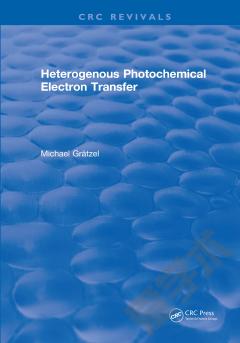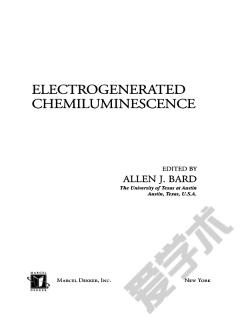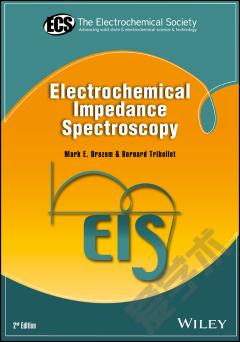Heterogenous Photochemical Electron Transfer
The present monograph attempts to unify these diverse and exciting new developments within a common framework. First, the physical principles underlying heterogenous electron-transfer processes are outlined in a concise way and are compared to the homogeneous counterpart. This analysis includes the notion of the Fermi level in liquids and solids as well as the distribution of electronic energy levels in solids and liquids. A comparison is made between the salient kinetic features of homogeneous and heterogeneous electron transfer reactions. This establishes the basis for the subsequent treatment of the transduction of excitation energy and photo-initiated electron transfer in organized molecular assemblies, such as micelles, vesicles and monolayers. Transmembrane redox processes are critically reviewed. Particular attention is given to semiconductor electrodes and particles. This includes a discussion of quantum size effects, the nature of space charge layers as well as surface states and the dynamics of charge carrier-induced redox reactions at the semiconductor solution interface. These processes are of fundamental importance in such diverse fields as photochromism, electrochromic displays, electroreprography and photography, information storage, photocatalysis, photodegradation of paints, and solar energy conversion.
{{comment.content}}








 京公网安备 11010802027623号
京公网安备 11010802027623号